
This was one of the most beautiful streets in Toronto
Leafing through William Dendy's insightful and poignant Lost Toronto, I came across a 10-page section dedicated to the buildings of Toronto Street, the short strand connecting King and Adelaide, west of St James Cathedral. The book reads like a conservation hall of shame, but Dendy pays the most attention to this particular disfigured thoroughfare.
Once home to several great examples of gothic and Second Empire architecture, Toronto Street is now a mishmash of high-rise glass structures, squat stone boxes, and modern marble with the odd national historic site thrown in for good measure. Although it's far from the ugliest of the city's streets, you can't help but wonder what it might have been had things been different.
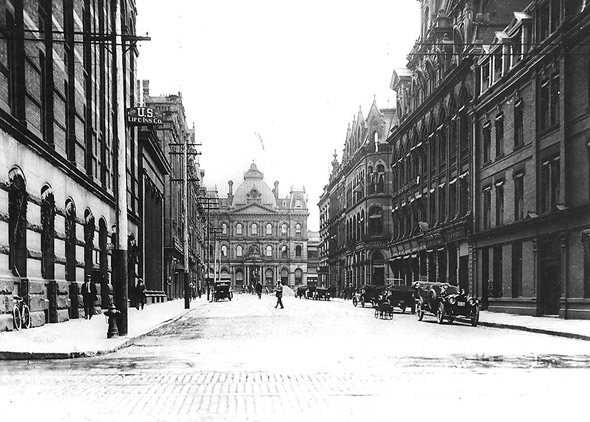
Most conspicuously absent today are the Masonic Hall and General Post Office, the once grand central structure of Toronto's postal system. Designed by Henry Langley, the architect behind McMaster Hall and a host of city churches, and built between 1869 and 1873, The GPO stood at 36 Adelaide Street West â the head of Toronto Street-for 85 years. Its chivalrous covered "Ladies' Entrance," recessed windows and mansard roofs are now gone forever, replaced by the wall of glass currently occupied by State Street Corporation.
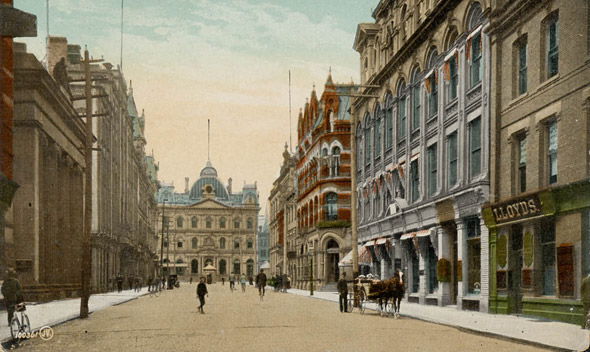
At 18-20 Toronto Street, beside the surviving Toronto Street Post Office, was the quirky Masonic Hall with its stepped roof and carved stonework. Originally conceived as a music venue, the building was quickly adapted for use by the city's nine masonic lodges: comprising offices, assembly rooms and an armoury. It was one of the first buildings to emphasise height like many of the first skyscrapers would in later years. The Masonic Hall lasted 107 years before being demolished in favour of the current office tower in 1965.
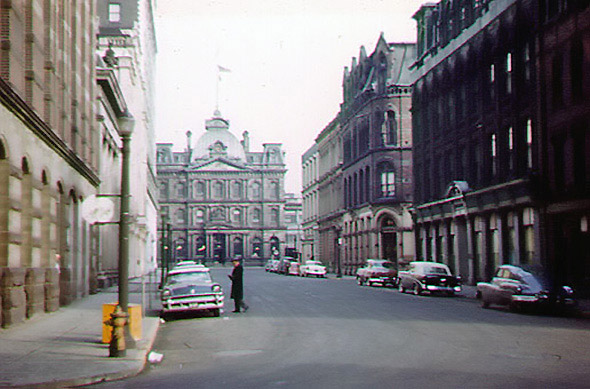
Lamenting the loss of the building that once housed the Rice Lewis and Son hardware store on the north-east corner of King and Toronto to a double-decker parking lot in the late 50s, Dendy described the neutering of Toronto Street as "the worst and most positive act of vandalism in the city, actively disfiguring what was once one of Toronto's most important streets-and its most beautiful-with an aggressively ugly concrete skeleton."
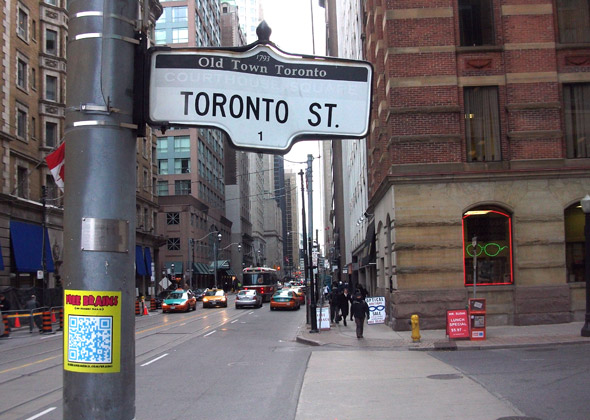
The offending parking deck has now gone the same way as its predecessor, replaced by an anonymous multi-floor building and a CIBC branch, but looking at pictures of the street taken around 1900 it's not hard to see why Dendy was so outraged. Just four of the street's approximately eleven buildings survive. Also gone the way of the wrecking ball: The Toronto Union Block, Union Loan and Savings Company Building and Temple Chambers. I get it-some buildings have to go to make way for progress. I just wish the replacements lived up to the acts they followed.
Toronto Street Before and After
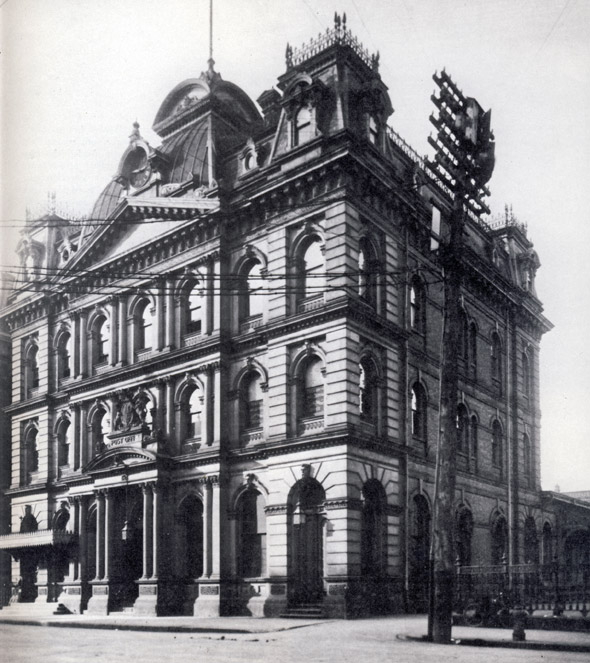
General Post Office, 36 Adelaide West circa 1900
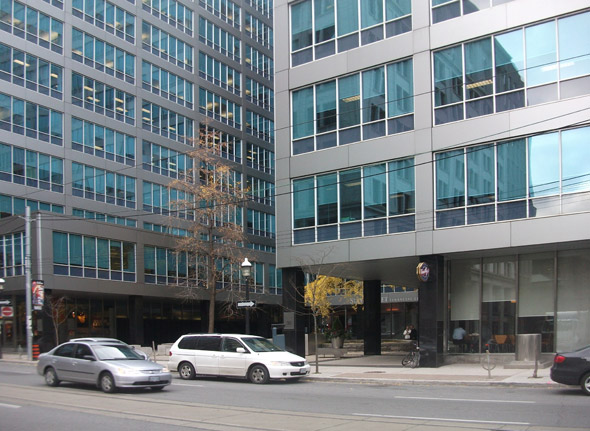
Current day view of the site
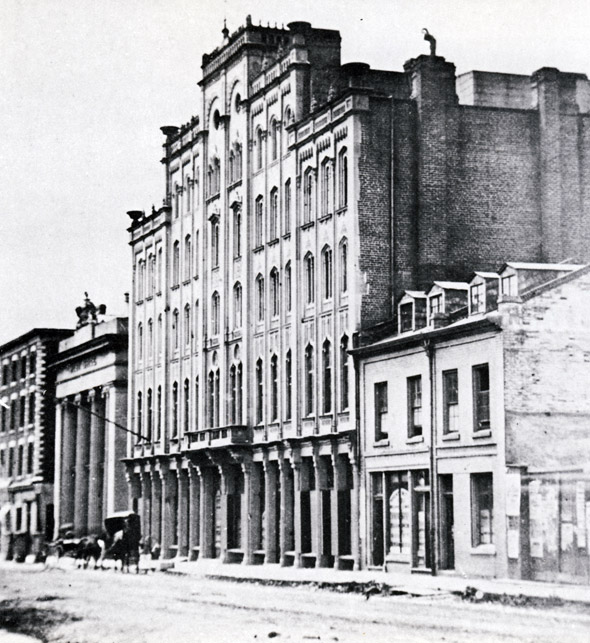
The Masonic Hall in 1868
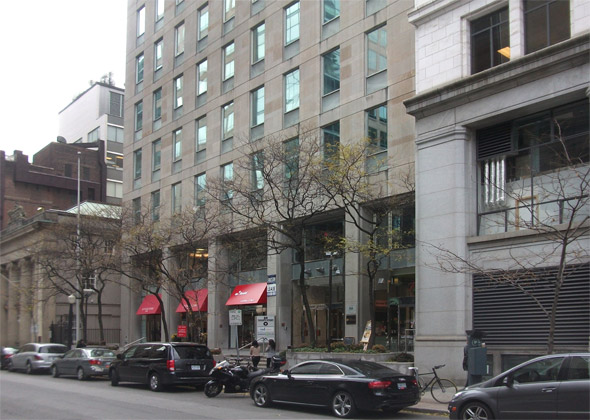
Current day view of the site
Writing and colour photographs by Chris Bateman.
Photos and scans from the Toronto Archives and William Dendy's Lost Toronto
Latest Videos
Latest Videos
Join the conversation Load comments







